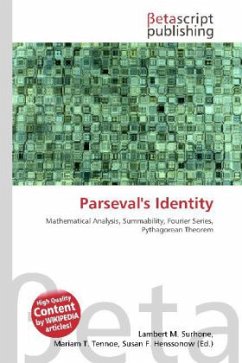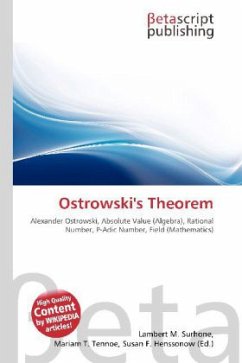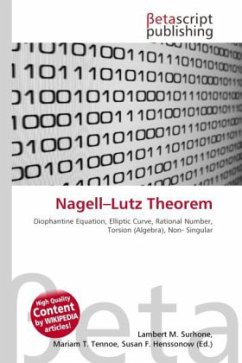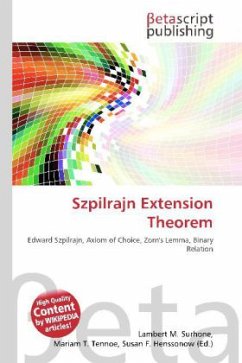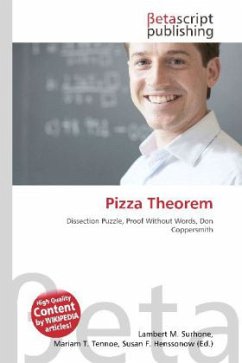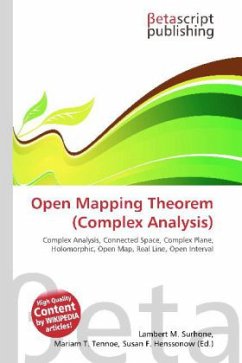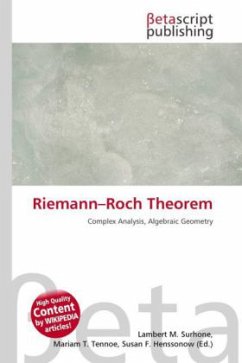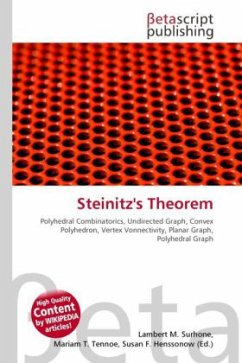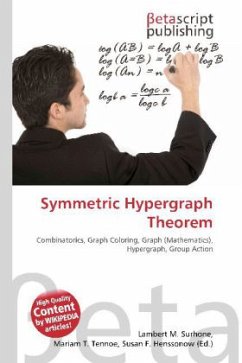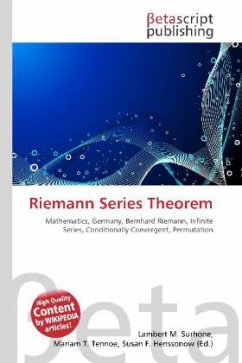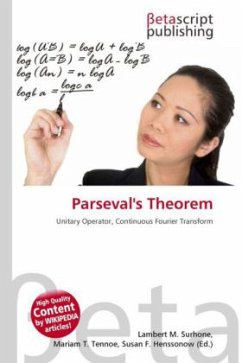
Parseval's Theorem
Versandkostenfrei!
Versandfertig in 6-10 Tagen
26,99 €
inkl. MwSt.

PAYBACK Punkte
13 °P sammeln!
Please note that the content of this book primarily consists of articles available from Wikipedia or other free sources online. In mathematics, Parseval''s theorem usually refers to the result that the Fourier transform is unitary; loosely, that the sum (or integral) of the square of a function is equal to the sum (or integral) of the square of its transform. It originates from a 1799 theorem about series by Marc-Antoine Parseval, which was later applied to the Fourier series. It is also known as Rayleigh''s energy theorem, or Rayleigh''s Identity, after John William Strutt, Lord Rayleigh. Alt...
Please note that the content of this book primarily consists of articles available from Wikipedia or other free sources online. In mathematics, Parseval''s theorem usually refers to the result that the Fourier transform is unitary; loosely, that the sum (or integral) of the square of a function is equal to the sum (or integral) of the square of its transform. It originates from a 1799 theorem about series by Marc-Antoine Parseval, which was later applied to the Fourier series. It is also known as Rayleigh''s energy theorem, or Rayleigh''s Identity, after John William Strutt, Lord Rayleigh. Although the term "Parseval''s theorem" is often used to describe the unitarity of any Fourier transform, especially in physics and engineering, the most general form of this property is more properly called the Plancherel theorem.



